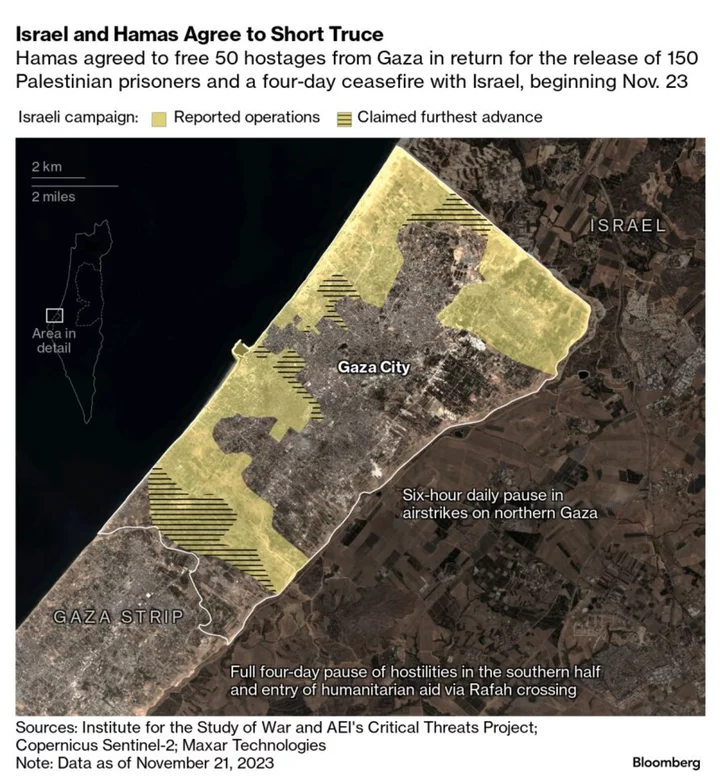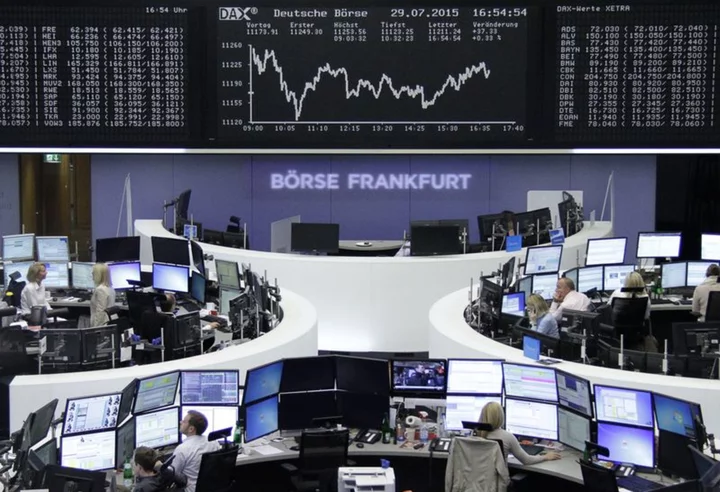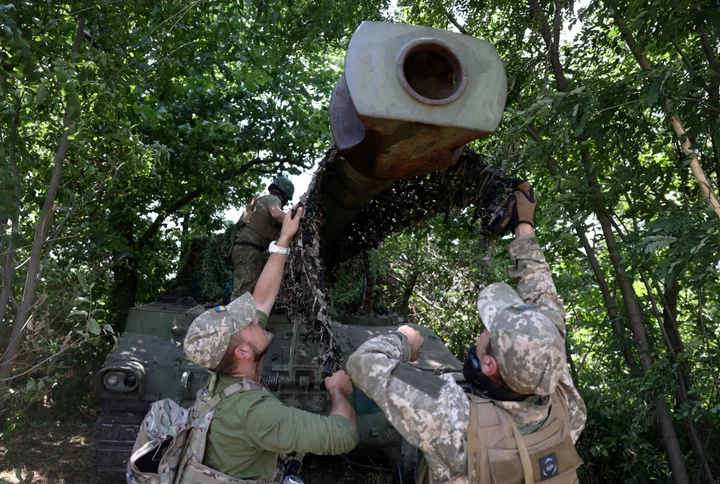Israel and Hamas’s talks over a deal for a short-term truce continued overnight, with Israeli officials signaling that the release of hostages from Gaza would be delayed for a day until Friday.
It’s unclear if the four-day pause in fighting would also start later, or begin as initially envisaged on Thursday morning.
The head of Israel’s National Security Council said the hostage releases would begin “not before Friday,” underscoring the fragility of the complex accord, which was announced in the early hours of Wednesday.
President Joe Biden spoke Wednesday with key players involved in the fraught negotiations that led to the deal, including Israeli Prime Minister Benjamin Netanyahu and the leaders of Qatar and Egypt. The White House emphasized the need for all parts of the deal to be implemented.
Israel and Hamas, through talks mainly mediated by Qatar, agreed that the Iran-backed militant group would free 50 women and children held in Gaza. In turn, Israel will release 150 women and Palestinians under the age of 19 from Israeli jails. US officials said three Americans would be among the hostages leaving Gaza.
Netanyahu said the war will continue until Hamas is destroyed as an organization, but the accord will still mark the first major lull in fighting since the conflict erupted just over six weeks ago.
Israeli media have reported that the cease-fire would start only after the Red Cross receives hostages from Hamas, designated a terrorist group by the US and the European Union.
“Negotiations on the release of our hostages are progressing and continuing all the time,” Tzachi Hanegbi, head of Israel’s National Security Council, said.
Under the deal, more aid is expected to flow into Hamas-controlled Gaza to alleviate what the United Nations and Palestinian officials say is a humanitarian disaster. A second stage could see the pause in fighting extended another day for every 10 additional hostages released.
The agreement falls short of calls from many nations for an extended cease-fire, which Israel and the US have rejected, saying it would allow Hamas to rearm.
What Will Happen in Gaza After Israel Stops Its War on Hamas?
The deal’s outcome has high stakes for Biden, who faces pressure from many in his own party to bring an end to Israel’s offensive, launched after the Oct. 7 Hamas attack that killed 1,200 people and saw 240 taken hostage. More than 13,000 people have since been killed in the Palestinian enclave, according to the Hamas-run health ministry.
Qatar said the “humanitarian pause” could help stop the war and lead to a “just peace process.”
Netanyahu, though, has made clear Israel won’t let up.
“We are committed to destroying Hamas, getting all of our hostages back and making sure Gaza is no longer a threat to Israel,” he said.
He’s also instructed Mossad, Israel’s foreign-intelligence agency, “to act against the leaders of Hamas wherever they are.”
Defense Minister Yoav Gallant said Hamas’s leaders were “living on borrowed time,” and the fight against them would “span the entire globe.”
Diplomatic efforts to contain the conflict continued Wednesday. An Arab delegation headed by Saudi Arabia’s top diplomat, Prince Faisal bin Farhan, visited London, and is headed next to Paris for talks with French President Emmanuel Macron.
Iran Top Diplomat Meets Hamas, Islamic Jihad Officials in Beirut
Jordan’s Foreign Minister Ayman Safadi warned the longer Israel presses ahead with its assault on Gaza, the greater the risk of a wider conflict and terrorist attacks on Western assets.
There is a concern that “if we get to a certain point there’s no going back,” he said.









